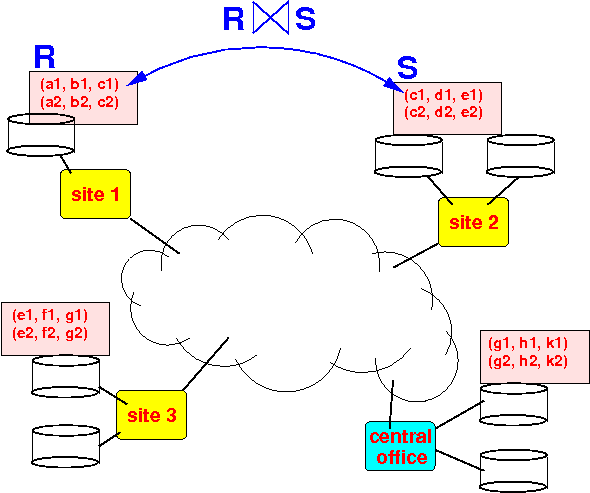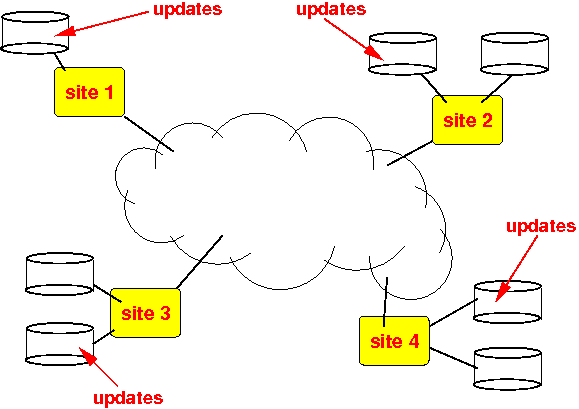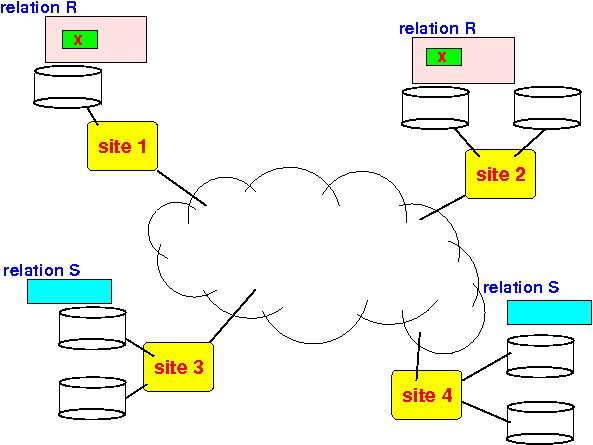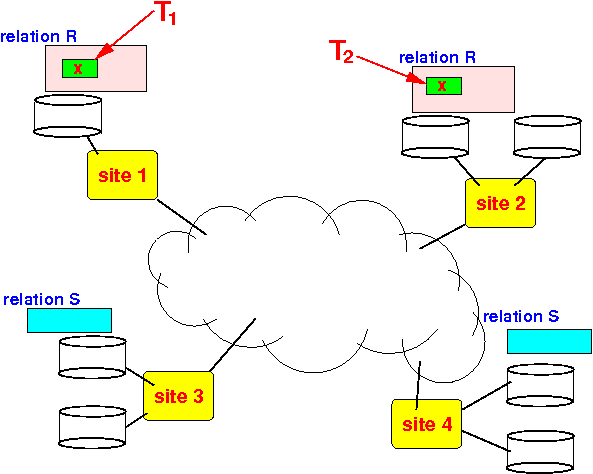- Query on distributed database:
- Some of the
relational algebra operations
can be performed locally.
E.g.:
- Selection
- Projection (bag)
- However:
- Some of the
relational algebra operations
must use relations stored
at multiple sites.
- Specifically:
- The join operation R ⋈ S will require one of the relation to be transfer to the storage location of the other relation before the join operation R ⋈ S can be performed
Example:

- Some of the
relational algebra operations
must use relations stored
at multiple sites.
- Some of the
relational algebra operations
can be performed locally.
- Issue:
- How to execute join operations to minimize the response (processing) time ???
- Performance differences between
a distributed database and
a shared-nothing parallel system:
- Distributed database systems has higher communication cost !!!!
- Shared-nothing
parallel system:
- Storage/processing nodes are located in the same room
- Interconnection network (a LAN) used has Gbps transmission rate
- Distributed database:
- Storage/processing nodes can be located in different states or even countries
- Interconnection network
used has Mbps
transmission rate
- When distributed databases were first developed, the network speed was only Kbps !!!
- Consequently:
- Dominant
cost in
Distributed databases:
- Communication !!!
- Dominant
cost in
shared-nothing
parallel system:
- Disk I/O
- Dominant
cost in
Distributed databases:
- Recall: transaction
- A transaction must incorporate all updates or none of the updates (= atomic)
- Transaction processing in a
distributed system:
- Multiple processors (sites)
contain updates to the
database:

- Ensure the
atomic property:
- All the
updates at
all sites are
incorporated into the
database
or
- None of the updates at any site is incorporated into the database
- All the
updates at
all sites are
incorporated into the
database
or
- Multiple processors (sites)
contain updates to the
database:
- We will study:
- Distributed
commit protocols
to ensure the
atomic commit
property
- Two-phase commit
- Three-phase commit
- Distributed
commit protocols
to ensure the
atomic commit
property
- Recall:
- Concurrent execution of
transactions can cause the
database state to
become inconsistent
- We must also
ensure that the
schedule (of database operations)
is serializable
- We have studied locking to ensure conflict serializability
- Concurrent execution of
transactions can cause the
database state to
become inconsistent
- Locking and
data replication:
- When the data is
replicated:

Then it is possible that multiple transactions hold a conflicting lock on the same data item:

- In the case of
replicated data, we must:
- modify the locking method to handle locks on different (physical) copies of the same (logical) data item
- When the data is
replicated: